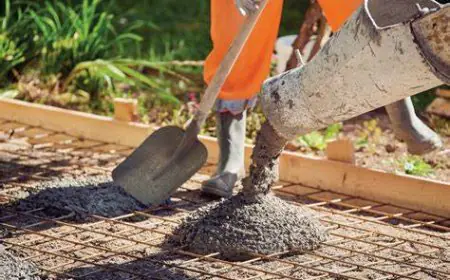How we estimate the house building cost online?
The house building cost refers to the total expense of constructing a new residential property. It encompasses various elements, including materials and labor

Introduction
Building a house is a major milestone for anyone, marking a new chapter in their lives. It's an exciting journey filled with anticipation, but it's essential to be well-prepared and informed about the costs involved. Understanding how to calculate the house building cost online can be a game-changer, as it allows you to plan and budget effectively.
Understanding the Basics
What is the House Building Cost?
The house building cost refers to the total expense of constructing a new residential property. It encompasses various elements, including materials, labor, permits, fees, and other miscellaneous expenses.
Factors Affecting House Building Cost
Numerous factors can influence the overall cost of building a house. From location and size to the choice of materials and labor availability, each aspect plays a significant role in determining the final cost.
Preparation and Research
Gathering Necessary Information
Before diving into the cost calculation process, you need to gather essential information. This includes details about the house design, architectural plans, and any specific requirements you may have.
Setting a Budget
Setting a realistic budget is crucial for the success of your house building project. Assess your financial capacity and align it with your aspirations to create a feasible budget.
Exploring Building Options
Different construction methods and materials can have varying costs. Exploring various building options can help you make an informed decision that suits your budget and preferences.
Online Cost Estimators
How Do Online Cost Estimators Work?
Online cost estimators are valuable tools that provide an estimate of the house building cost based on your inputs. They consider factors such as location, size, materials, and other specifications to generate an approximate figure.
The Benefits of Using Online Tools
Using online house building cost calculator offers several advantages. It saves time, allows for easy comparison, and helps you get a rough idea of the project's financial scope.
Types of House Building Costs
Material Costs
Materials play a significant role in the cost of construction. Understanding the costs of various materials helps you make informed choices during the selection process.
Labor Costs
Labor costs account for a substantial portion of the budget. It's essential to consider the skill level and availability of labor when estimating expenses.
Permit and Inspection Fees
Acquiring necessary permits and undergoing inspections are essential steps in the building process. Be prepared to include these costs in your budget.
Additional Costs
Beyond materials and labor, several other expenses might arise during the construction phase. Having a contingency plan can help you manage these unforeseen costs effectively.
Factors Affecting House Building Costs
Location and Site Conditions
The location of your building site can influence costs significantly. Factors like accessibility, soil conditions, and utility connections can impact expenses.
Size and Complexity of the House
The size and complexity of the house directly affect the building cost. Larger and more intricate designs generally come with higher price tags.
Choice of Materials and Finishes
Your choice of materials and finishes can range from budget-friendly to luxurious. Balancing quality and cost is essential when making these decisions.
Labor Availability and Skill Level
The availability and skill level of labor in your area can impact labor costs. Regions with high demand for skilled workers may have higher rates.
The House Building Process
Design and Planning
The design and planning phase lays the foundation for the entire project. Proper planning ensures a smoother construction process and helps you stay within budget.
Foundation and Framing
The foundation and framing are critical components of the house's structure. Ensuring these are done right is vital for a solid and safe building.
Installation and Construction
During this phase, various systems and components, such as plumbing, electrical, and HVAC, are installed. The cost of these installations should be factored into the budget.
Finishing and Final Touches
The final touches, including interior finishes and exterior detailing, contribute to the overall cost and aesthetics of the house.
Comparing Quotes from Contractors
Requesting Detailed Quotes
When seeking quotes from contractors, be sure to request detailed breakdowns of costs. This allows for accurate comparisons between different proposals.
Analyzing the Quotes
Scrutinize the quotes thoroughly to understand what is included and excluded. This helps you avoid unexpected costs later on.
Negotiating and Finalizing Contracts
Negotiating with contractors can lead to cost savings. Ensure all agreements are in writing to avoid any misunderstandings.
Tips for Cost Savings
Sustainable Building Practices
Incorporating sustainable and energy-efficient features can result in long-term cost savings on utilities.
DIY vs. Hiring Professionals
Some tasks can be DIY projects, but it's essential to know when it's best to hire professionals to avoid costly mistakes.
Timing the Project
The timing of your project can influence costs. Off-peak seasons might offer better rates and availability.
Avoiding Hidden Costs
Contingency Planning
Building a contingency fund in your budget accounts for unforeseen expenses.
Understanding Contracts
Comprehending the terms of contracts with contractors helps avoid surprise costs.
Regular Communication with Contractors
Staying in touch with contractors throughout the project prevents misunderstandings.
Monitoring and Managing Costs
Tracking Expenses
Keeping track of expenses helps you stay within your budget and identify areas where cost adjustments are needed.
Controlling Scope Creep
Ensure that any changes to the project's scope are well-documented and understood in terms of their financial implications.
Making Adjustments as Needed
Flexibility is crucial in managing costs. Be open to making adjustments if necessary to avoid overspending.
Preparing for Unexpected Expenses
Building a Cushion in the Budget
Aim to have a cushion in your budget to handle unexpected costs without derailing the project.
Handling Surprises Gracefully
Unforeseen expenses are a part of the building process. Keeping a positive attitude can make dealing with surprises less stressful and also you need to check our paint calculator
Finalizing the Budget
Revisiting the Budget
Before finalizing the budget, review all the components and make necessary adjustments for accuracy.
Finalizing the House Building Cost
With a thorough understanding of all the elements involved, you can finalize the total house building cost.
Conclusion
Calculating the house building cost online empowers you with the knowledge needed to embark on this exciting journey with confidence. By understanding the factors that influence costs and following best practices to manage expenses, you can make your dream home a reality without breaking the bank. in a new building house you need to calculate the paint cost and tiling cost and these calculation are only possible in tile calculator
FAQs
How accurate are online cost estimators?
Online cost estimators provide approximate figures based on the inputs provided. While they can offer a general idea, actual costs may vary depending on several factors, so it's essential to use them as a starting point rather than a definitive value.
Can I save money by purchasing materials myself?
Purchasing materials yourself may save you money on some items, but it's essential to weigh the benefits against the added responsibilities and potential issues with warranties or returns.
What are some common hidden costs in house building?
Some common hidden costs include unforeseen site conditions, changes in design or material preferences, and additional fees for permits or inspections.
How long does it typically take to build a house?
The duration of the building process can vary depending on the size and complexity of the house, weather conditions, and other factors. On average, it can take anywhere from a few months to a year.
Is it better to hire a general contractor or manage subcontractors myself?
Hiring a general contractor can streamline the building process and ensure better coordination between subcontractors. However, managing subcontractors yourself can save money but requires more time and effort on your part. Choose the option that aligns with your budget and comfort level.
What's Your Reaction?

































































































